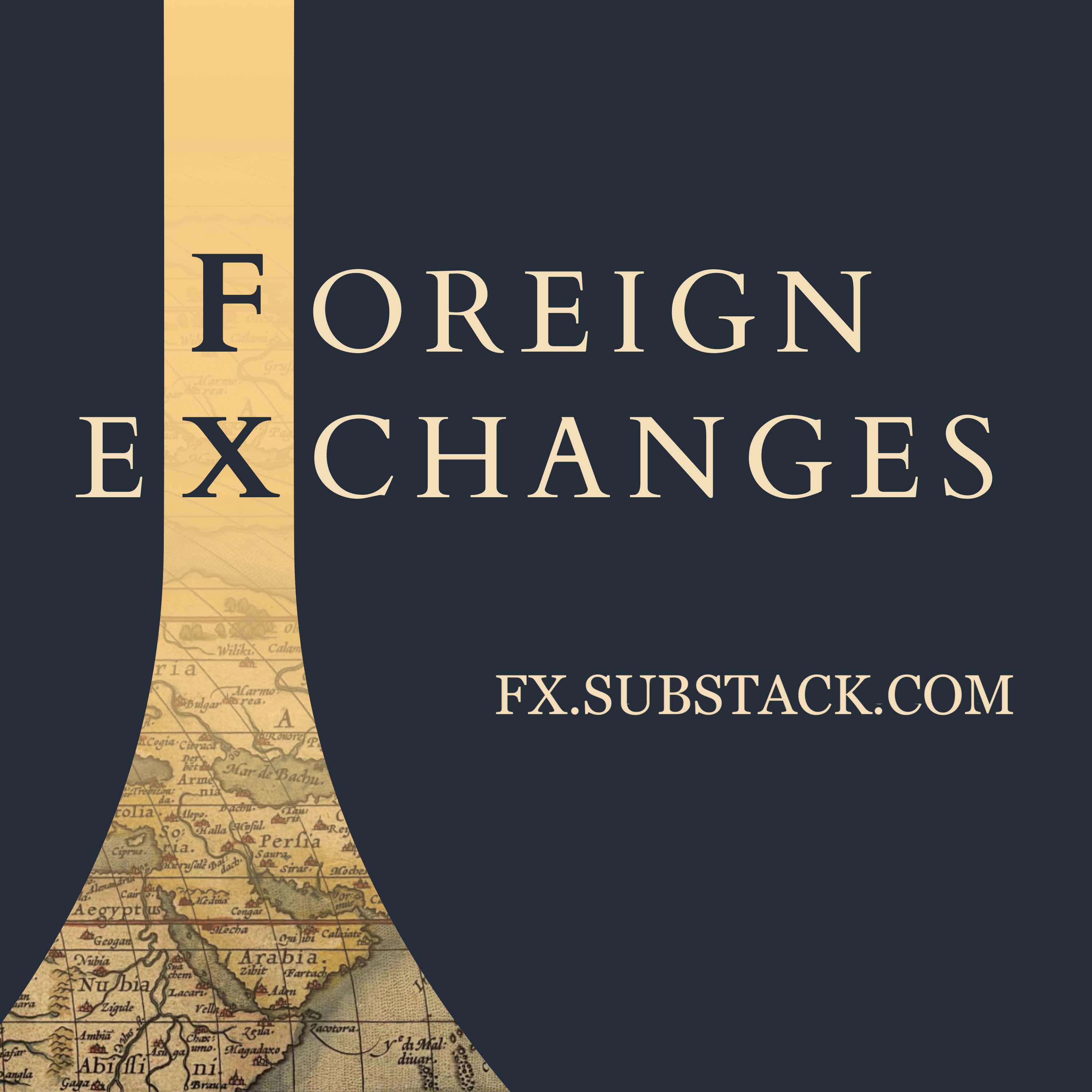

Foreign Exchanges: the Podcast
Derek Davison
Foreign Exchanges is a newsletter that helps you stay on top of important stories happening around the world. Our companion podcast aims to understand the contemporary world by looking to the past. Join host Derek Davison as he interviews writers and scholars whose work sheds light on world history. www.foreignexchanges.news
Episodes
Mentioned books

Jan 30, 2023 • 19min
World roundup: January 28-29 2023
Stories from Israel-Palestine, Ethiopia, Peru, and elsewhere This is a public episode. If you'd like to discuss this with other subscribers or get access to bonus episodes, visit www.foreignexchanges.news/subscribe

Jan 27, 2023 • 24min
World roundup: January 26 2023
Stories from Myanmar, Ethiopia, Ukraine, and elsewhere This is a public episode. If you'd like to discuss this with other subscribers or get access to bonus episodes, visit www.foreignexchanges.news/subscribe

Jan 25, 2023 • 23min
World roundup: January 24 2023
Stories from Lebanon, Myanmar, Ukraine, and elsewhere This is a public episode. If you'd like to discuss this with other subscribers or get access to bonus episodes, visit www.foreignexchanges.news/subscribe

Jan 23, 2023 • 23min
World roundup: January 21-22 2023
Stories from Turkey, Burkina Faso, Peru, and elsewhere This is a public episode. If you'd like to discuss this with other subscribers or get access to bonus episodes, visit www.foreignexchanges.news/subscribe

Jan 20, 2023 • 19min
World roundup: January 19 2023
Stories from Lebanon, Taiwan, Ukraine, and elsewhere This is a public episode. If you'd like to discuss this with other subscribers or get access to bonus episodes, visit www.foreignexchanges.news/subscribe

Jan 18, 2023 • 25min
World roundup: January 16-17 2023
Stories from Yemen, China, Somalia, and elsewhere This is a public episode. If you'd like to discuss this with other subscribers or get access to bonus episodes, visit www.foreignexchanges.news/subscribe

Jan 13, 2023 • 24min
World roundup: January 12 2023
Stories from Libya, Sweden, Peru, and elsewhere This is a public episode. If you'd like to discuss this with other subscribers or get access to bonus episodes, visit www.foreignexchanges.news/subscribe

Jan 11, 2023 • 23min
World roundup: January 10 2023
Stories from Armenia, Ethiopia, Ukraine, and elsewhere This is a public episode. If you'd like to discuss this with other subscribers or get access to bonus episodes, visit www.foreignexchanges.news/subscribe

Jan 9, 2023 • 26min
World roundup: January 7-8 2023
Stories from Syria, China, Ukraine, and elsewhere This is a public episode. If you'd like to discuss this with other subscribers or get access to bonus episodes, visit www.foreignexchanges.news/subscribe

Dec 23, 2022 • 26min
World roundup: December 22 2022
Stories from Afghanistan, Ukraine, Venezuela, and elsewhere This is a public episode. If you'd like to discuss this with other subscribers or get access to bonus episodes, visit www.foreignexchanges.news/subscribe


